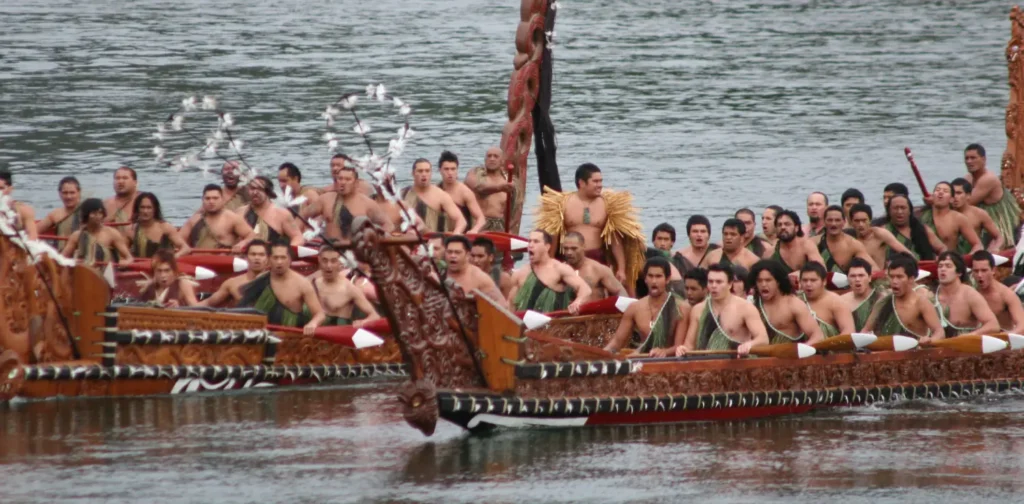How Moana Project Combines Traditional Knowledge and Technology for Ocean Sustainability

Photo by easegill on Flickr
Oceans have been a source of life and livelihood as well as a part of many cultures’ traditional roots. This is especially true for the Maoris in New Zealand. However, impacts of climate change are growing increasingly bigger, affecting Indigenous Peoples and local communities first and foremost. In this light, the Moana Project in New Zealand aims to protect the ocean by combining traditional knowledge with technology.
Provider of Life on Earth
The ocean is a fundamental element of our planet that creates the cycle of the world that we know today. Oceans cover over 70% of the Earth’s surface and have been supporting life for hundreds of thousands of years. It is impossible to think of a functional ecosystem without oceans.
Oceans provide more than half of our total oxygen. The plants and algae in them produce more oxygen than all of the rainforests combined. Furthermore, oceans provide food and become the main source of protein to more than a billion people worldwide. They are also a source of livelihood for over three billion people that depend on marine and coastal biodiversity for income. In the midst of climate change, oceans act as a halter of risks due to their carbon and heat absorption characteristics.
But like other natural resources, the ocean is finite, and we may have reached its limits these days.
Humans have disturbed oceans, leaving only 13% of them untouched. Overfishing has led to declines in some fish species populations, increased carbon dioxide from human activities has caused ocean acidification, and dead zones are appearing due to nitrogen pollution.
Moana Project: Traditional Knowledge and Technology
The Moana Project is an initiative launched in 2018 aimed at supporting the blue economy and maintaining ocean health through collaborative partnerships that leverage traditional knowledge and technology.
The project emphasizes two-way knowledge exchange between scientists and the traditional Iwi communities through a trust board. The Iwi communities themselves have traditional lands along the coast, with aquaculture and fishing as core traditions.
For instance, local Iwi communities provide scientists with information about mussel locations to monitor the health and population of these species, which have been traditionally harvested by Iwi communities and are culturally important. This work gives the Iwi key insights into mussel populations, which can help them advocate for stronger government protection of crucial mussel beds.
Meanwhile, Moana Project’s temperature monitoring program involved local fishers, citizen scientists, research vessels, and others to deploy a temperature sensor system for the seas. Over 250 vessels took part in collecting near-real-time temperature data while carrying out their regular activities at sea.
Collaboration for Sustainability
Conservation efforts need collaboration and knowledge exchange from all stakeholders. Like in the Moana Project, the combination of traditional knowledge that has been practiced for hundreds of years and modern technology enables Indigenous Peoples and local communities to make better informed decisions to protect themselves and their nature.
Amidst the climate crisis, opening spaces for discussion and collaborative effort between traditional communities and modern agencies is a crucial first step. This approach can serve as a model for similar mitigation and conservation efforts to be implemented in other regions around the world to sustain the natural environment and protect the wellbeing of all creatures.
Editor: Nazalea Kusuma

Co-create positive impact for people and the planet.
Amidst today’s increasingly complex global challenges, equipping yourself, team, and communities with interdisciplinary and cross-sectoral insights on sustainability-related issues and sustainable development is no longer optional — it is a strategic necessity to stay ahead and stay relevant.
Dinda Rahmania
Dinda is an Assistant of International Partnerships at Green Network Asia. She holds a bachelor’s degree in International Relations from President University. As part of the GNA In-House Team, she supports the organization’s partnerships with international organizations, governments, businesses, and civil society worldwide through digital publications, events, capacity building, and research.


 Strengthening Resilience amid Growing Dependence on Space Infrastructure
Strengthening Resilience amid Growing Dependence on Space Infrastructure  Indian Gig Workers Push Back Against 10-Minute Delivery Service Strain
Indian Gig Workers Push Back Against 10-Minute Delivery Service Strain  Call for Governance: Grassroots Initiatives Look to Scale Efforts to Conserve Depleting Groundwater
Call for Governance: Grassroots Initiatives Look to Scale Efforts to Conserve Depleting Groundwater  Integrating Environment, Climate Change, and Sustainability Issues into Education Systems
Integrating Environment, Climate Change, and Sustainability Issues into Education Systems  Finally Enforced: Understanding the UN High Seas Treaty
Finally Enforced: Understanding the UN High Seas Treaty  Risks and Opportunities of Submarine Communication Cables for Sustainable Development
Risks and Opportunities of Submarine Communication Cables for Sustainable Development